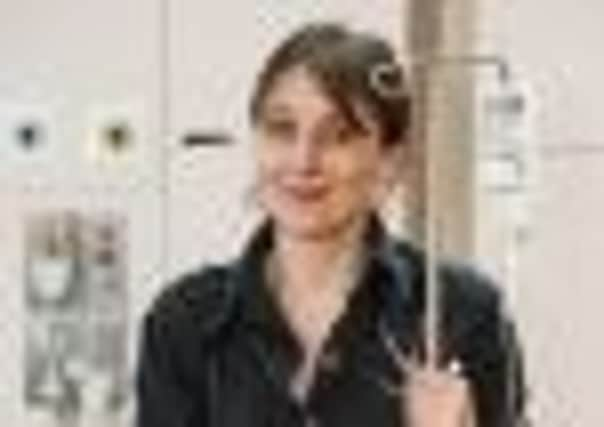DIY medication clinic is success


The Outpatient Parental Antimicrobial Treatment (OPAT) clinic, which operates as a day centre, was introduced at the Western General Hospital in 2011 in a bid to reduce hospital admissions.
It has saved 4700 “bed days” in the last year – ten bed spaces a day – by either treating patients at the centre or showing them how to administer drugs at home.
Advertisement
Hide AdAdvertisement
Hide AdSo far, hundreds needing intravenous antibiotics have used the centre for conditions ranging from skin infections to tropical diseases.
Now health bosses are looking to open a satellite clinic at St John’s Hospital in Livingston to help cut admissions there.
Dr Claire Mackintosh, consultant physician in infectious diseases, NHS Lothian, who helped set up the centre, said it was a progressive form of treatment that transformed patient care.
She said: “Patients really appreciate being able to recuperate and recover at home. It really helps them get back on their feet faster.
“We’ve had about a third of patients who have opted to be taught how to administer their own intravenous treatment at home.
“They have some teaching sessions with the nursing staff, we give them all the equipment they need to safely administer it and see them once a week at hospital for a review.”
Referrals are made from A&E, GPs and other hospital wards for anyone with skin, bone and joint infections, those resistant to treatment, as well as brain and spinal infections.
It follows calls last year to solve Lothian’s mounting bed-blocking crisis, with the number of patients becoming stranded in hospitals believed to have hit a four-year high.
Advertisement
Hide AdAdvertisement
Hide AdDr Mackintosh said the home treatment was popular as it meant patients could go about their daily lives.
She said: “We have had teenagers that have been referred to us who have been able to return to school and their friends much sooner, which is better for them.”
RCN Scotland associate director Ellen Hudson warned against it being used as a cost-cutting measure.
She said: “For those patients who feel able to self-medicate, this new service will give them the choice to be at home or attend a clinic rather than having to be admitted to hospital.
“It must not, however, be seen as a cost-cutting exercise, as patients will continue to need ongoing support from professionally qualified nursing staff to make sure their treatment is safe and right for them.”
Dr David Farquharson, medical director at NHS Lothian, said: “We welcome any initiative which helps aid patients’ recovery and makes them feel more comfortable, and we look forward to extending the OPAT service to other sites across NHS Lothian.”
‘It’s much more comfortable at home’
Len Cockett, 63, of Joppa, underwent several weeks of treatment at the clinic for a severe leg infection.
His wife Jan was taught how to administer anti-clotting medication from home so he only had to go for 45-minute appointments every other day.
Advertisement
Hide AdAdvertisement
Hide AdHe said: “It freed up a bed that I would have been in for another six weeks.
“It was a nasty infection and took a while to treat but this way meant I could be at home and just go in to the unit to be treated by specialist staff.
“The idea is that you can be treated in an environment that’s comfortable for you and I think it worked really well.”
Jan, 63, a retired teacher, said she felt confident she could administer the drugs. She said: “It was fine. I was shown what to do by nurses and they checked I could do it.”